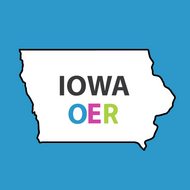Stand up, Speak out: The Practice and Ethics of Public Speaking
(View Complete Item Description)From audience analysis to giving a presentation, Stand up, Speak out: The Practice and Ethics of Public Speaking will guide students through the speech making process. The authors focus on the process of speech making because they have created this book to be a user-friendly guide to creating, researching, and presenting public speeches. While both classic and current academic research in public speaking guide this book, the authors believe that a new textbook in public speaking should first, and foremost, be a practical book that helps students prepare and deliver a variety of different types of speeches — and that is the primary goal of this book.With practicality in mind, the authors developed, Stand up, Speak out: The Practice and Ethics of Public Speaking, as a streamlined public speaking textbook. Many public speaking textbooks today contain over twenty different chapters, which is often impossible to cover in a ten-week quarter or a sixteen-week semester; this textbook is eighteen unique chapters. The fifteen chapters are divided into four clear units of information: introduction to public speaking, speech preparation, speech creation, and speech presentation.
Material Type: Textbook


















